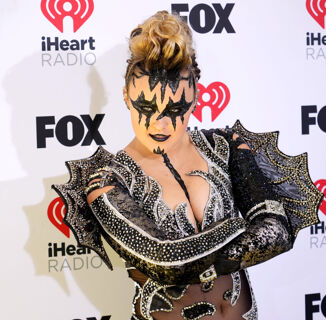Dear Any and Every Twitter User Reading This,
I know you are being inundated with requests from your friends, your mutuals — or worse, Twitter themselves — to use their new Clubhouse-replica feature, Twitter Spaces. Spaces allows you to converse with others in audio form as opposed to text or video, as much of the internet is built around.
As happens whenever a new feature comes out, especially when they’re a way to increase community and dialogue, many of you may be very excited to use it. That’s great! I’m not here to dunk on you for that by any means, although I will note there is reason for many digital culture observers and online safety experts to express concern.
With that in mind, I do have one request for you and anyone else you can get to read this. A large basis of how Spaces works, like Clubhouse, is based around who you follow, and who the people you follow are following.
This is intentional. As Clubhouse believed and tried to rely on, a key method of getting users accustomed to using a new application or feature is by bringing the communities people love onto it first, and then keeping those users by keeping the focus on their own circle of fellow users.
The problem is, as Clubhouse ran into, there is a reliance on community participation that may go too far. For Spaces, any space that your followers enter gets put on your timeline, assuming you aren’t notified and/or invited to it, depending on your setting and the users you follow. That’s beyond the now-dedicated Spaces tab that Twitter implemented on mobile and desktop apps, the ability for users to tweet a link out to their spaces, and the constant efforts to call attention to both through promotions and marketing gimmicks.
Again, that alone isn’t indicative that the feature is bad, but in their desperation to get users to jump on the new feature by any means necessary, they have (unintentionally, if you’re optimistic) made it a home for people to bring dangerous rhetoric, misinformation, and bigotry to a relatively-unregulated space where they are not as likely to face consequences for violating Twitter’s rules, as they would if they tweet out some of the things they’re trying to say.
That’s not your fault, Twitter user. For one, this was the same issue that Clubhouse ran into; although the app skyrocketed in popularity this year, with the pandemic raging on, it has since sharply declined because it began festering with hate speech, scams, indoctrination, and toxicity as soon as it reached a certain amount of users. Unlike Twitter, Clubhouse had no other features on their platform — their success hinged entirely on their ability to foster a welcoming environment for people, and they tried to cover up their issues with invitations to rich people and celebrities for too long before it ultimately fell short.
Of course, Clubhouse is not entirely dead, but there is a large faction of its original users that will never return to it, and despite what Facebook, et al have pulled off in the past, that’s usually what spells the demise of digital brands.
The issue here is, Twitter is also not keen on resolving the issues with their platform until its too late. Thus, they’re blindly following in Clubhouse’s tracks in an attempt to mimic their initial three-month run, while allowing exactly what has led to their nine-month decline since. Despite Clubhouse’s CEO having already forewarning as much, Twitter is clearly not heeding the ghosts of internet’s past. They’ve decided to make Spaces open to non-Twitter users in an attempt to increase its popularity and increase the likelihood of metrics that make the feature look good to investors.
That means that not only is Spaces the hottest place for Twitter’s already-large base of hateful, harmful users, but people not accountable to Twitter (or worse, skirting that accountability) can easily use the feature to further their agendas.
We’re already seeing this happen in droves, as writer Katelyn Burns documented in an article last month. It comes as no surprise to any person who has understanding of how social media in the last five years has worked could’ve predicted.
Well #TwitterSpaces is starting off real strong 😬 pic.twitter.com/j9qMxynscv
— Mr. Rama Vs. Comics (@AndTheBPRD) November 25, 2021
Hello @TwitterSpaces why are you featuring shit like this ?? pic.twitter.com/97Y8rcRnT7
— Hanaa’ Tameez (@HanaaTameez) November 30, 2021
twitter keeps trying to shove spaces down my throat and i do not appreciate it!!!! please let me get rid of this tab!!!! a nightmare pic.twitter.com/xpUAdIIp6t
— anna maría (@onlyannamaria) November 18, 2021
Time to light a candle and check what’s happening on Twitter Spaces pic.twitter.com/BoITg6MInE
— Blake Montgomery (@blakersdozen) November 29, 2021
I wonder how twitter spaces are goi…oh… pic.twitter.com/VCnbOWEMVN
— Katelyn Burns (@transscribe) November 28, 2021
Twitter Spaces will require a lot more discernment about what and who we amplify.
A lot of people use our outrage to help themselves.
Think before potentially boosting shit people don't need to see.
— Wagatwe Wanjuki 🇰🇪 🇧🇸 (@wagatwe) November 29, 2021
Comedians, too.
twitter spaces is either "MACARONI SYMPHONY!! 🥵🤤😮💨 AMERICA'S GOT GUSHY!!" or "Scientific Weaknesses of Non Males and Non Whites: Discuss"
— giabucci (@jaboukie) November 30, 2021
Again, this is not to blame you for the result of decades-long failures by the people in power at the corporations that pushed these features, and their refusal to heed to the concerns of hordes of marginalized people that have warned them.
This isn’t even to tell you not to use it — it’s a tool for you to connect with others, and that’s not always a luxury for everyone, especially as the rest of the internet also turns unsafe and volatile.
I’m just asking one thing: when you see or hear a Twitter Space that is focused largely on amplifying a -phobia or defending violence or supporting bigoted people or furthering systems of oppressions, just don’t click it. If you’re already in one and didn’t find out from the title of it, then just back out and unfollow the person(s) in it, if you can. The more you stay in it and/or share it, the more it’s not only amplified to other people, but forced down the throats of the people it’s out to harm.
Again, because of the way internet culture has been built on the failures to protect and support marginalized users, it is more common — and even, arguably, beneficial — for people to think that arguing with people presenting harmful beliefs or content, or even trying to change their minds, is the best way to approach these situations. In almost every scenario on today’s internet, that is not the case. Twitter Spaces is one of the more blatant examples why: If you are in a space promoting harm, you are inadvertently promoting that same harm to almost every single one of your followers, and further legitimizing it to the followers of the other people in that Space, too.
Like, ok wow people hate Black women. It's a day that ends in y.
Why should i give attention and spend energy on some nobody with tons of free time looking for their narcissist supply?
— Wagatwe Wanjuki 🇰🇪 🇧🇸 (@wagatwe) November 29, 2021
You may think you can go into a transphobic space to convince the person that’s followed you for a few years that trans people have always existed and they deserve respect, but you’re showing each and every of your trans followers that you’re supporting such a space. And even if that’s not your intent, the chances that you’ll be able to enter a Space that you’re not in control of, or even moderating, and start a “debate” with a person is bound to turn into a failure. “Debate” on the internet, especially for promoters of hate, is nothing more but an opportunity to ego-trip and further spread their rhetoric.
Also, even if you manage to have a civilized conversation and even convince some people to change their mind about something, there will be others who fall for the indoctrination of your opponent and/or their supporters, and they become more emboldened in their quest to not only defend their ideology, but the person they look to for understanding of that ideology. That means opening yourself and others to harassment, targeted attacks, and possibly worse. Just stay away. The best way to diffuse bigotry on social media is to starve it of attention.
So don’t go into their Spaces, or share them, or even tweet about them. If you must, take a screenshot and/or censor the harmful rhetoric the Space is seeking to promote, but unless you’re documenting it for specific reasons, there’s little to gain from tweeting negatively about them. All it’ll do will bring it to others’ attention and grow the likelihood someone will end up down those rabbitholes. (This is a good general rule to keep regarding any harmful content on social media, by the way. Facebook and people like Donald Trump have incentivized the “dunk” response to terrible posts that inadvertently further their reach and relevancy.)
I'm bored of bigotry as growth hacking.
Most of these people are not important or relevant enough to care.
We can't change those people. But we can direct energy elsewhere that can be productive.
— Wagatwe Wanjuki 🇰🇪 🇧🇸 (@wagatwe) November 29, 2021
If you feel inclined to, report it, although I wouldn’t hold my breath on Twitter’s already abysmal moderation to do anything substantial, if much of anything at all. They’ve only just included Spaces under the same content moderation tools that tweets and other content fall under, meaning Spaces featuring words you’ve muted and people you’ve blocked won’t come up on your timeline or notifications — which they were until they made it otherwise. Clearly, they’re behind on basic things that any digital feature in the modern age needs to have.
So tweet responsibly and safely, user, as always — but your physical and mental space is important to protect and maintain, and Twitter Spaces you allow into your digital space shouldn’t be treated any less than that.
Signed,
One of several tired digital users who have seen this all before.
P.S. If anyone connected to Twitter comes across this, can you at least make an option to possible to just hide the feature altogether? We know it doesn’t help the “take over the internet” direction you’re attempting to head in, but give us at least one thing about this hellish website that doesn’t have to be changed.
See Also: What Does Jack Dorsey’s Departure from Twitter Spell Out for Queer Users?
Don't forget to share:
Help make sure LGBTQ+ stories are being told...
We can't rely on mainstream media to tell our stories. That's why we don't lock our articles behind a paywall. Will you support our mission with a contribution today?
Cancel anytime · Proudly LGBTQ+ owned and operated
Read More in The Internet
The Latest on INTO
Subscribe to get a twice-weekly dose of queer news, updates, and insights from the INTO team.
in Your Inbox













